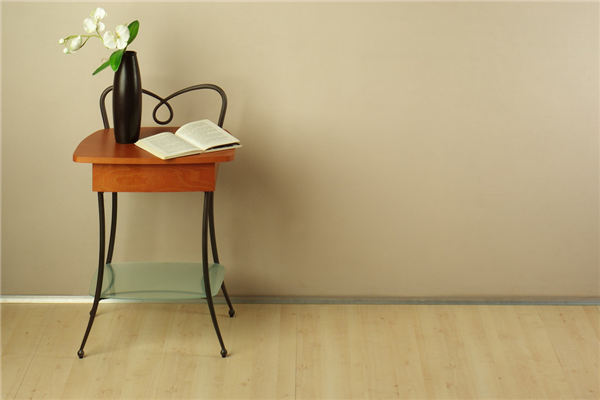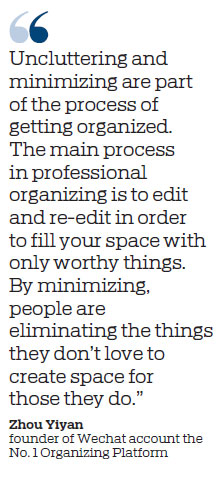More turning to the bare essentials of life


He offered an explanation of why people across the US and the developed world are abandoning consumerism to live more simply: "Rising unemployment, stagnant wages and falling stock prices have forced families and individuals to re-evaluate their purchases. People have begun living on tighter budgets. As a result, many consumers are choosing to identify the difference between essential and nonessential purchases."

Sociologist Joel Stillerman said there is a connection between minimalism and a quest for well-being among certain educated, upper-middle-class areas of society in the US and other Western countries. In his book The Sociology of Consumption: A Global Approach he states that minimalism is also meant to "project taste, refinement and aesthetic knowledge".
"These people are making the statement: 'I can afford to have less. I appreciate books and travel and good meals'," he said.
Zeb Smith, 30, from the US, became a minimalist in 2014 after losing his job. He discovered that by reducing the number of items he owned, he had a better quality of life.
Smith said he grew up in a typical US consumerist family. "We had so many toys, clothes, videotapes, books and other things that you could not see the floor in our house. The messy home caused serious stress in my parents' marriage. They eventually got divorced."
After losing his job, Smith and his wife moved to Colorado from Idaho, a distance of 1,450 kilometers.
"We could not afford a big trailer for the move, so we had to get rid of a lot of things. After we got to Colorado, we bought more things again, and marriage was hard. I worked all day and came home to a messy house."
Smith and his wife noticed that their cluttered home was causing them stress. While his wife, Lauren, searched on the internet for ways to solve the problem, Smith wrote a book titled Minimalism in Real Life: 4 1/2 Practical Steps Towards a Meaningful Life, which was published under the name Jefferson Gow.
Learning from his experience, he said he hoped to help people systematically create peace in their homes by practicing minimalism.
"Things are so affordable now that they no longer work as symbols of social status. Cleanliness and tidiness are becoming the new marks of wealth," he said.
In the US, millennials - the 18 to 34 age group that comprises more than 25 percent of the population and the majority of the workforce - are the main driving force seeking a minimalist lifestyle.
Robin Lewis, a US retail expert said: "Millennials have a unique set of values around how they choose to spend their money. They grew up during the recession, entered a struggling job market and must now pay off record amounts of debt."
He said the millennial generation is bigger than that of the baby boomers in terms of numbers, but has less money. "This is a big threat to the economy. They're not into a lot of shopping," Lewis added.




































